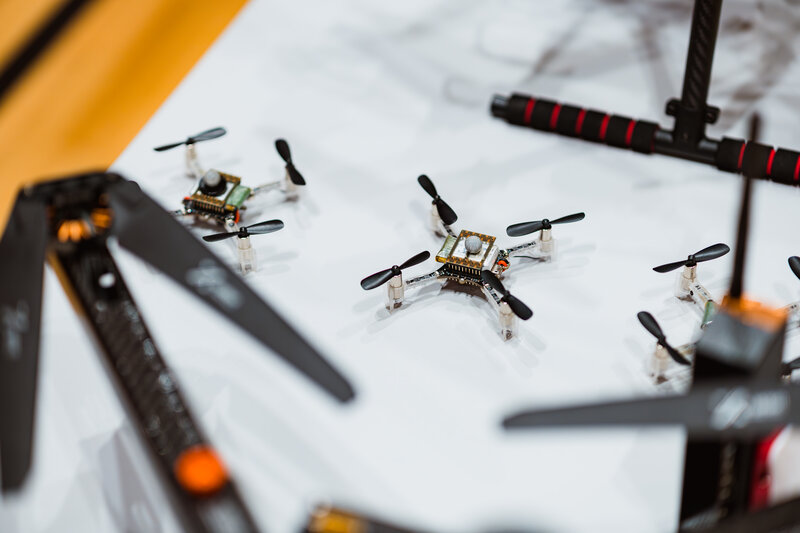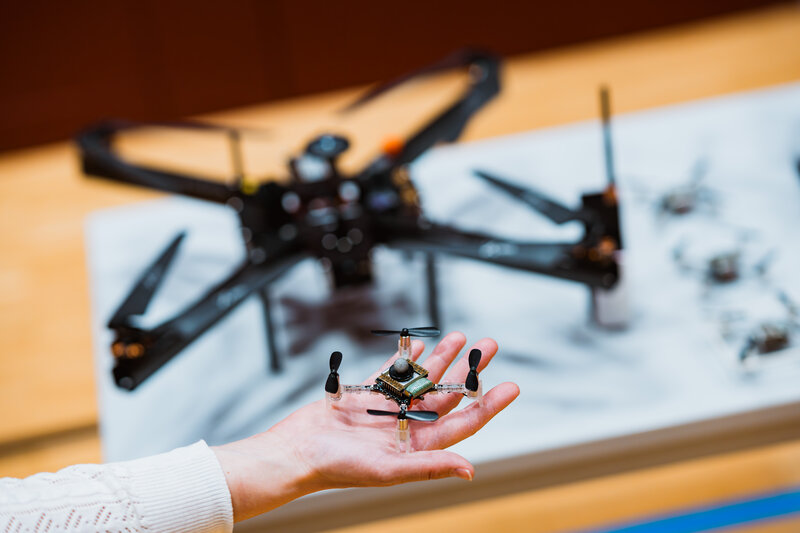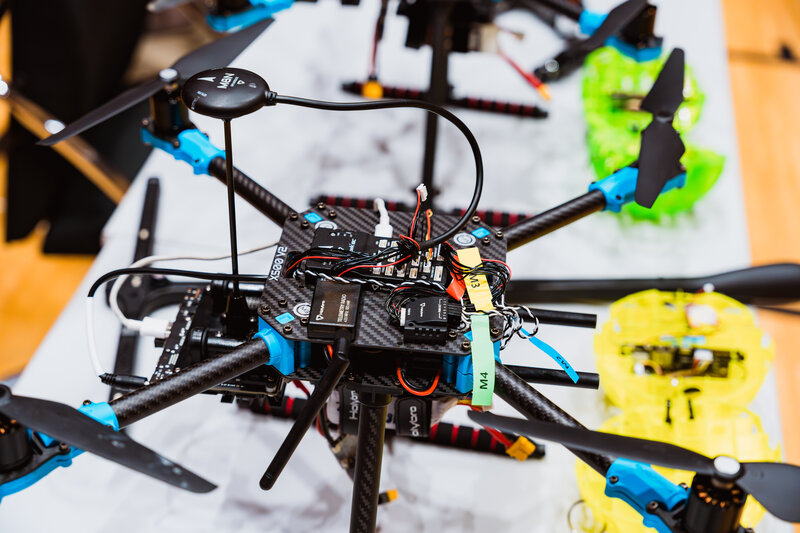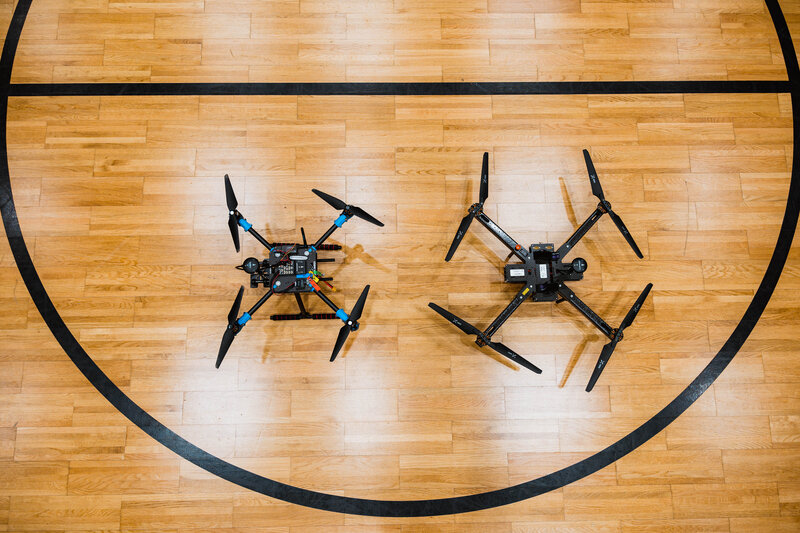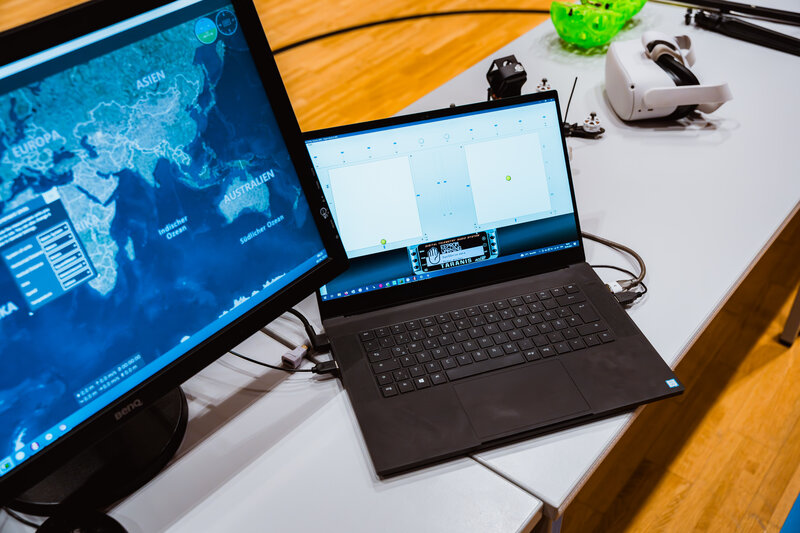Innovation takes off: The drone laboratory at the FH Kufstein Tirol
- 28.05.2025
- Research
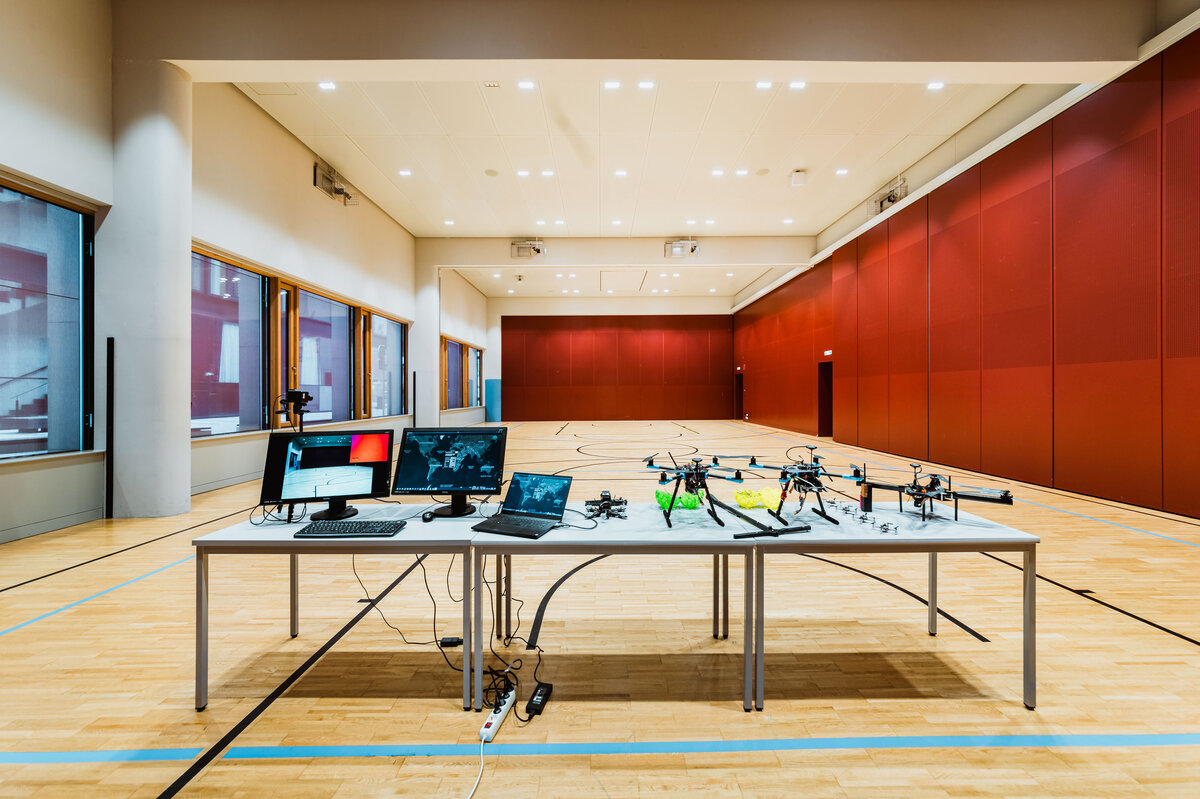
Versatile flight systems in action: The Drone Lab at the University of Applied Sciences Kufstein Tirol has various types of drones available for research, teaching, and practical applications.
Autonomously flying drone swarms, search and rescue missions in the Alps, or methane gas detection over volcanic areas – what sounds futuristic has long been reality at the Drone Lab at the University of Applied Sciences Kufstein Tirol.
Under the direction of FH Rector Prof. (FH) PD Dr. Mario Döller, the Drone Lab develops visionary drone applications and creates practical learning and research scenarios for students and external partners.
A SPACE FOR THE TECHNOLOGIES OF THE FUTURE
The Drone Lab is a 150 m³ state-of-the-art experimental facility dedicated to the application, further development, and testing of unmanned aerial systems. At its heart is an indoor hall equipped with a precise motion tracking system from Vicon that enables flight maneuvers accurate to the millimeter. The equipment is supplemented by a drone detection system, various sensors, and a versatile set of aircraft—from the Crazyfly micro drone to a specially developed hydrogen drone.
Our infrastructure enables us to simulate realistic scenarios – from autonomous swarm flight and search flights to sensor-based environmental detection.
Prof. (FH) PD Dr. Mario Döller
University Rector
The decisive advantage: regardless of the weather, both basic flight techniques and complex algorithms can be tested and improved in a safe environment.
RESEARCH ON MULTIPLE LEVELS
The Drone Lab's research focuses on a wide range of topics that are highly relevant today. Key areas include:
- Autonomous drone swarms and their coordination via AI-supported agent systems
- Hydrogen-powered drones that stay in the air six times longer than conventional models
- Methane and CO₂ detection for environmental and safety applications
- Drones for mountain rescue, construction progress monitoring, and agriculture
“We are particularly proud of our swarm control algorithms,” says Döller. ‘We only define the target area—the system takes care of the rest independently.’ Projects such as SpecDrone (methane gas detection), AI4Green (agriculture), and Start2 (mountain rescue) demonstrate how drone technology is addressing specific challenges of the present day.
LEARNING IN THE THIRD DIMENSION
The Drone Lab is open to students from all disciplines. In specially developed courses, they learn how drone technology is constructed, how it is programmed and controlled, and how to evaluate sensor data.
Typically, projects go through three phases: computer simulation, indoor testing, and finally outdoor testing—for example, at the certified airfield in Kundl, with which the University of Applied Sciences Kufstein Tirol cooperates closely.
“The path from idea to application is very practical for us,” says Döller. ”We want our students to learn early on what drones can and cannot do in the real world.”
COOPERATIONS WITH GENUINE ADDED VALUE
It is not only students who benefit from the Drone Lab. The University of Applied Sciences actively collaborates with regional companies, municipalities, and organizations. A particular highlight was the collaboration with the province of Tyrol in setting up a drone competence center. The team is currently researching new applications in alpine regions, such as detecting gas clouds in difficult-to-access terrain or use in natural hazards.
In the future, the laboratory facilities will be further expanded to include a drone workshop and additional hardware for special application tests.
CONCLUSION
The Drone Lab at the University of Applied Sciences Kufstein Tirol is not just a place for technological gadgets – it is a real-world laboratory for the innovative solutions of tomorrow. Anyone interested in researching or studying at the interface between technology, safety, and sustainability will find ideal conditions here. Starting in fall 2025, the university will also offer Austria's only bachelor's degree program in Drone Engineering & AI-based Innovation* – an in-depth education for anyone who wants to not only use drone technology, but also actively shape it. And with a dedicated team led by Prof. (FH) PD Dr. Mario Döller, you can be sure that you won't just take off – you'll also land safely.
*Start subject to approval by AQ Austria
Links:
- Drone Lab | Website
- Research Projects | Website
- Drone Engineering & AI-based Innovation* | ft
Check out the Drone Lab in action on YouTube!

